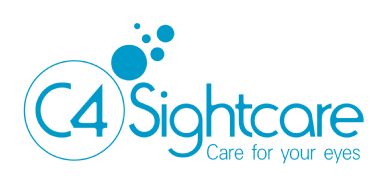



Symptoms
Why are you having your eyes examined? Is it a routine check-up or have you come for a specific reason such as VDU screening.
If you experiencing problems with your eyes or vision your practitioner will need to know what symptoms you have, how long you have had them and whether any changes have happened suddenly or slowly over a period of time.
History
Your optometrist will need to know about your general health including if you are taking any medication, whether you suffer from headaches, currently wear spectacles or contact lenses, or have any close relatives with a history of eye problems etc. Additional information, which will help your practitioner to make an accurate assessment, includes your occupation, whether you play sports or have any hobbies etc.
Examining the Eye
Your eyes will be examined both externally and internally. This will enable an assessment to be made of the general health of your eyes and identify any other underlying medical problems. The interior of your eye will be examined using an ophthalmoscope which shines a light through the pupil allowing a detailed study of the internal structures.
Other tests which may be carried out, if necessary, include for example those for glaucoma or colour vision deficiency. If you are over 40, the College of Optometrists recommends you should have the three glaucoma tests: to check the pressure in your eyes, your field of vision and to have an internal inspection of the eye.
Vision
Your vision will be measured both with and without spectacles or lenses in front of the eyes to check for any problems with your eyesight.
Your optometrist will do a series of tests to measure the type and extent of any problem with your vision. You will then be asked to choose between different lenses to see which ones help the quality and clarity of your vision.
Eye movements & Co-ordination
Eye movements and co-ordination are checked to make sure that both eyes are working together, and that undue stress is not being placed on their muscles. Good muscle balance is particularly important for those who use computers, drive etc.
After the eye examination
Your practitioner will now have a detailed knowledge of the health of your eyes, the standard of your vision and any special requirements that you may have. This information will be explained to you but remember, if you do not understand anything or require more information PLEASE ASK your optometrist who will be only too pleased to help.
At the end of the examination you will be advised on the appropriate interval until your next examination and be handed a prescription for spectacles or contact lenses or a statement which confirms that your eyes don't need correction. If you need medical treatment for an eye condition you may be referred to you doctor.
When you have your prescription made up, you will be given help in choosing spectacles or contact lenses. If you choose contact lenses you will be given advice on the various types of lenses available, the procedures for fitting lenses further information about caring for and cleaning your lenses.
If you are not satisfied with your spectacles or contact lenses make sure that you contact your practice so that the matter can be dealt with promptly. There may be a small fee charged for this service.
As part of continuing care and service your optometrist will be happy to adjust or make minor repairs to your spectacles where possible. Your spectacles can work loose with wear and accidents do happen!



The Eye Examination
An eye examination is carried out by an optometrist and usually takes about 20 - 30 minutes (but may take longer if extra specific tests are required) and will normally include the following elements: